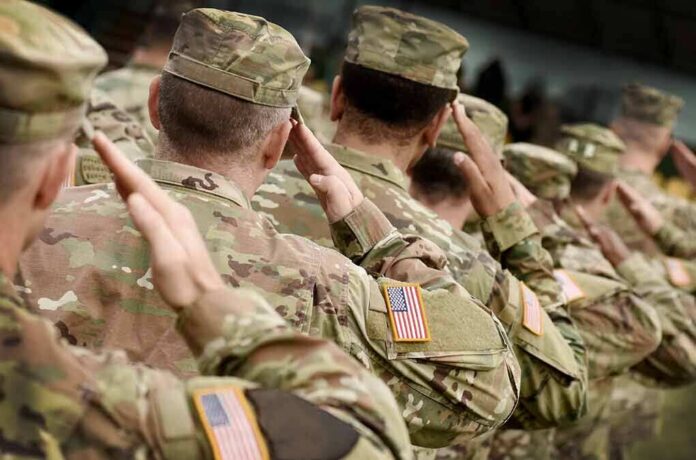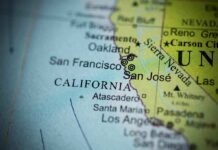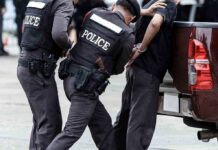
Steve Hilton’s scathing takedown of Gavin Newsom reveals how the California governor’s political posturing and failure to protect citizens led President Trump to deploy U.S. Marines to quell violent anti-ICE riots in Los Angeles.
Key Takeaways
- President Trump deployed 700 U.S. Marines to Los Angeles after local Democratic leadership failed to control anti-ICE riots
- Steve Hilton, California gubernatorial candidate, provided first-hand reports of destruction in Los Angeles while criticizing Newsom’s leadership
- Governor Newsom filed a lawsuit to remove federal troops while blaming Trump for the unrest
- The riots highlight broader governance failures in Democrat-controlled California, including ongoing issues with homelessness, crime, and high taxes
- Conservative discourse has shifted from border wall discussions to interior immigration enforcement after claims of over 10 million illegal immigrants entering during the Biden era
Newsom’s Failed Response to the Los Angeles Riots
As anti-ICE riots engulfed parts of Los Angeles, President Trump decisively deployed 700 U.S. Marines to restore order after local leadership proved incapable of controlling the escalating violence. The contrast between Trump’s firm law-and-order approach and the hesitation of California’s Democratic leadership has become a focal point in the intensifying debate over immigration enforcement. Governor Gavin Newsom’s response has been particularly criticized for prioritizing political posturing over public safety, with his administration seemingly more concerned with opposing federal immigration enforcement than protecting California citizens.
Instead of addressing the destruction and violence, Newsom filed a lawsuit challenging the deployment of federal troops and attempted to shift blame to President Trump. This reaction aligns with a pattern of governance that critics argue has contributed to California’s deteriorating conditions. Steve Hilton, who is challenging Newsom as a gubernatorial candidate, has been documenting the chaos first-hand, providing a stark contrast to some media outlets’ downplaying of the violence. The riots represent just the latest crisis in a state plagued by homelessness, crime, and exorbitant costs of living under decades of Democratic control.
Hilton’s On-the-Ground Perspective
Hilton’s presence on the ground in Los Angeles has given him unique credibility in critiquing the state’s leadership. As both a Fox News host and California gubernatorial candidate, Hilton has leveraged his media platform to highlight what he characterizes as a complete failure of state and local leaders to fulfill their most basic duty: protecting citizens. His reporting has drawn attention to the destruction caused by the riots and the apparent unwillingness of Democratic leaders to enforce the law when it conflicts with their political messaging on immigration.
The California candidate has specifically called out Newsom for condemning ICE operations while failing to address the resulting violence. This criticism extends beyond the immediate crisis to encompass broader governance issues, including the state’s approach to homelessness, crime, and economic policy. Hilton’s critique resonates with many Californians who have watched their state’s quality of life deteriorate despite having one of the highest tax burdens in the nation. His campaign is building momentum by highlighting these failures and proposing a more conservative approach to state governance.
Trump’s Decisive Federal Intervention
President Trump’s decision to deploy National Guard troops and Marines to Los Angeles represents a significant federal intervention in response to what he viewed as a failure of local leadership. The move underscores the administration’s commitment to immigration enforcement and maintaining public order, particularly in jurisdictions where local authorities have been hesitant to cooperate with federal agencies. This approach marks a continuation of Trump’s first-term policies but with an increased focus on interior enforcement rather than just border security, reflecting the evolution of conservative immigration policy.
The deployment of federal forces has sparked intense debate about federalism and the appropriate balance between state and federal authority. Newsom’s lawsuit challenging the deployment highlights these tensions, but also raises questions about whether California’s leadership is more concerned with opposing Trump than addressing the actual crisis. Speaker Johnson has joined the criticism of Newsom, highlighting what many conservatives see as political hypocrisy in the governor’s approach. The situation in Los Angeles has become emblematic of broader national divisions over immigration policy and enforcement.
California’s Broader Governance Crisis
The anti-ICE riots and the subsequent response from state leadership illuminate deeper issues in California’s governance model. After decades of Democratic control, the state faces compounding crises, including rampant homelessness, rising crime rates, high taxation, and regular natural disasters that many argue have been mismanaged. Critics point to these ongoing issues as evidence that the state’s progressive policies have failed to deliver on their promises, instead creating an environment where basic public services and safety cannot be guaranteed.
Despite these challenges, California’s electorate has continued to support Democratic leadership, prompting questions about the disconnect between governance outcomes and voter behavior. Hilton’s gubernatorial campaign seeks to capitalize on growing dissatisfaction, particularly among middle-class voters burdened by the state’s high cost of living and diminishing quality of life. The Los Angeles riots may represent a turning point in public perception, as they provide a visceral demonstration of governance failures that cannot be easily dismissed through political rhetoric or media framing.












